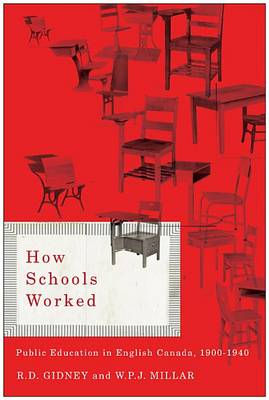Carleton Library
1 primary work
Book 224
Between the 1880s and the 1940s, children in English Canada encountered schools and school systems profoundly different from today's. In How Schools Worked, R.D. Gidney and W.P.J. Millar map the contours of that world, retrieving it from the obscurity created not only by the passage of time but by fundamental shifts in organization, pedagogical values, and beliefs about the role of public education. Moving beyond the rhetoric on school reform that marked the period, How Schools Worked focuses squarely on schooling itself. How many children went to elementary or secondary school, how often, and for how long? What was the range of their educational attainments? How were their patterns of attendance influenced by social class, gender, and where they lived? What and how were they taught? How were they assessed and promoted from grade to grade? What were their teachers' qualifications and experience? What were their school buildings like? Who paid the bills and how much did they pay? How well or badly were children and young people served by their schools? And how did answers to these questions change over time?
A sympathetic yet critical analysis, How Schools Worked is a portrait of a complex enterprise at work. Gidney and Millar offer a rich understanding of the period, a reappraisal of some major debates, and insights into educational issues that perplex us still.
A sympathetic yet critical analysis, How Schools Worked is a portrait of a complex enterprise at work. Gidney and Millar offer a rich understanding of the period, a reappraisal of some major debates, and insights into educational issues that perplex us still.
